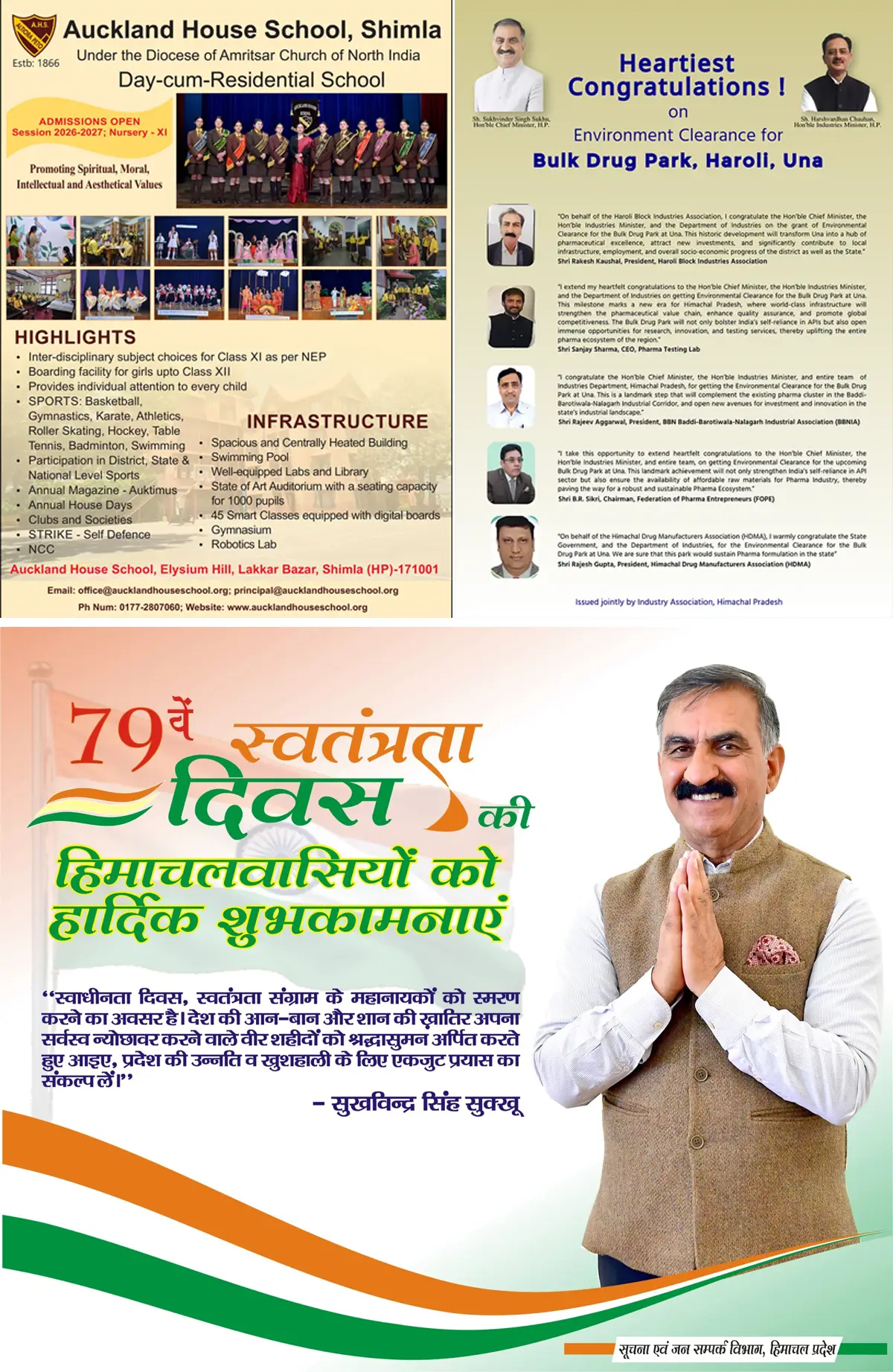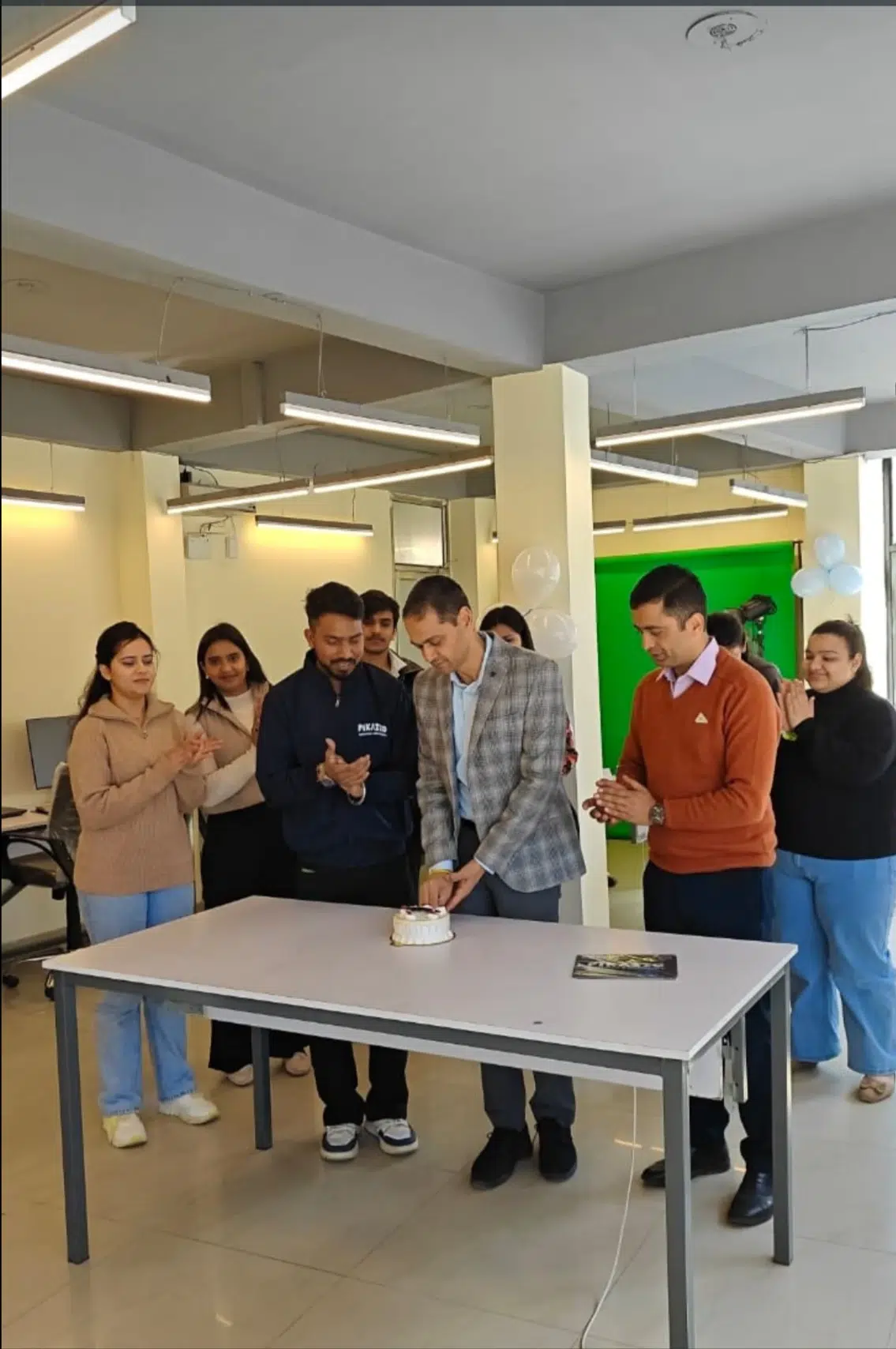Digital tech intervention leading to dynamic transformation in healthcare: Dr Purohit
3 min read
Image Source Internet
Shimla, Apr 15 – Digital influence and technological intervention are breaking barriers in the Indian healthcare industry, leading to a dynamic transformation, said Dr Naresh Purohit , Executive Member of the Federation of Hospital Administrators.
Principal Investigator for the Association of Studies for Healthcare Management , Dr Purohit told UNI here after delivering a key address at a seminar on “Technology in healthcare management ” organised by the Sirmaur based Indian Institute of Management (IIM) that Technology facilitates real-time diagnosis, improves the chances of successful treatments, lowers healthcare costs and reduces hospital stays. The growing potential of technology in healthcare indicates that Indian health infrastructure will be fortified.
He stated that artificial intelligence is geared up to dominate the Indian healthcare industry by increasing the market value from $1.1 billion to $5 billion at a 39 per cent compound annual growth rate (CAGR).
Technological trends like nanomedicine, virtual and augmented reality and robot-assisted surgery are also acquiring large space in the Indian healthcare industry.
“While adopting disruptive technologies, the Indian healthcare industry is evolving from improved accessibility and affordability to quality of life in the rural areas, as well, through technological advancements.” he added
“In India, the doctor-patient ratio is 1:1456 compared to the standard ratio of 1:1000 as per the WHO. Since the doctor-patient ratio in India lacks the standard WHO ratio, digital healthcare becomes more imperative in remote rural areas where doctors can reach via technology. “he averred.
Acclaimed physician and healthcare expert said artificial intelligence is the game changer in the global healthcare industry. Currently, the global market of AI stands at $15 billion and is estimated to expand at a CAGR of 37 per cent by 2030.
He pointed out that the high-focus areas of AI in Indian healthcare are triaging, detection and diagnostics. AI plays a vital role in identifying the underlying causes of diseases and managing their treatment plans.
He informed that virtual healthcare has become the potential tech health segment in India and is targeting to reach $5.4 billion at a CAGR of 31 per cent.
He elaborated that nanomedicine is another emerging tech-enabled trend that uses nanotechnology for highly-specific medical interventions for the diagnosis, treatment and prevention of diseases effectively. The global nanomedicine market size is expected to grow at a CAGR of 9.2 per cent by 2030.
He further said nanomedicines refer to a more diminutive and accurate delivery system that allows doctors to deliver chemotherapy directly to targeted tumors instead of poisoning an entire body. They slowly release medicine from a single nanoparticle, reducing the frequency of drug injections.
“Robot-assisted surgeries are the new-edge technology enabling doctors and specialists to perform delicate procedures and complex surgeries more accurately. The surgical tools consist of a camera and mechanical arms, controlled by a surgeon through a computer system, giving them a high-definition (HD) and magnified view of the surgical site. The advantages of this most commonly used system include enhanced precision, flexibility and control, less pain and blood loss and quicker recovery. Since it is minimally invasive, it results in fewer scars and complications than conventional surgeries ” he added.
“Virtual reality in healthcare caters to a broad spectrum of healthcare services. VR technology provides simulators that help healthcare professionals to practice surgeries and procedures in virtual reality, enhancing the quality of operations in real situations. It is also instrumental in physical and mental health treatments. While immersing in the virtual world lowers pain and anxiety, it also helps tackle traumatic experiences by recreating the situation.” he said.






